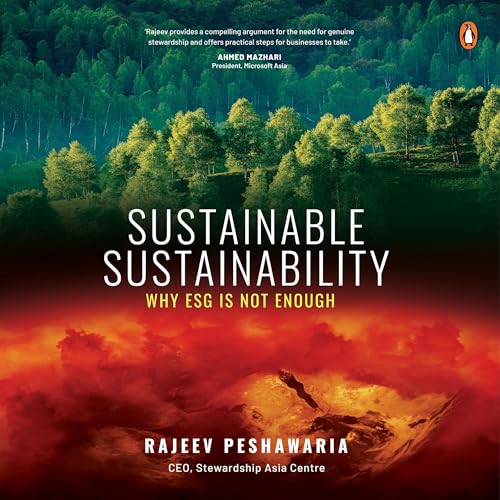
Sustainable Sustainability: Why ESG is not enough
Échec de l'ajout au panier.
Veuillez réessayer plus tard
Échec de l'ajout à la liste d'envies.
Veuillez réessayer plus tard
Échec de la suppression de la liste d’envies.
Veuillez réessayer plus tard
Échec du suivi du balado
Ne plus suivre le balado a échoué
0,00 $ pour vos 30 premiers jours
OFFRE D'UNE DURÉE LIMITÉE
0,99 $/mois pendant vos 3 premiers mois
L'offre prend fin le 16 décembre 2025 à 23 h 59, HP.
Exclusivité Prime: 2 titres
gratuits à choisir pendant l'essa. Des conditions s’appliquent.
Vos 3 premiers mois d'Audible à seulement 0,99 $/mois
1 nouveauté ou titre populaire à choisir chaque mois – ce titre vous appartiendra.
L'écoute illimitée des milliers de livres audio, de balados et de titres originaux inclus.
L'abonnement se renouvelle automatiquement au tarif de 0,99 $/mois pendant 3 mois, et au tarif de 14,95 $/mois ensuite. Annulation possible à tout moment.
Choisissez 1 livre audio par mois dans notre incomparable catalogue.
Écoutez à volonté des milliers de livres audio, de livres originaux et de balados.
L'abonnement Premium Plus se renouvelle automatiquement au tarif de 14,95 $/mois + taxes applicables après 30 jours. Annulation possible à tout moment.
Précommander pour 22,81 $
-
Narrateur(s):
-
ZACHARY COFFIN
-
Auteur(s):
-
Rajeev Peshawaria
À propos de cet audio
Pas encore de commentaire



